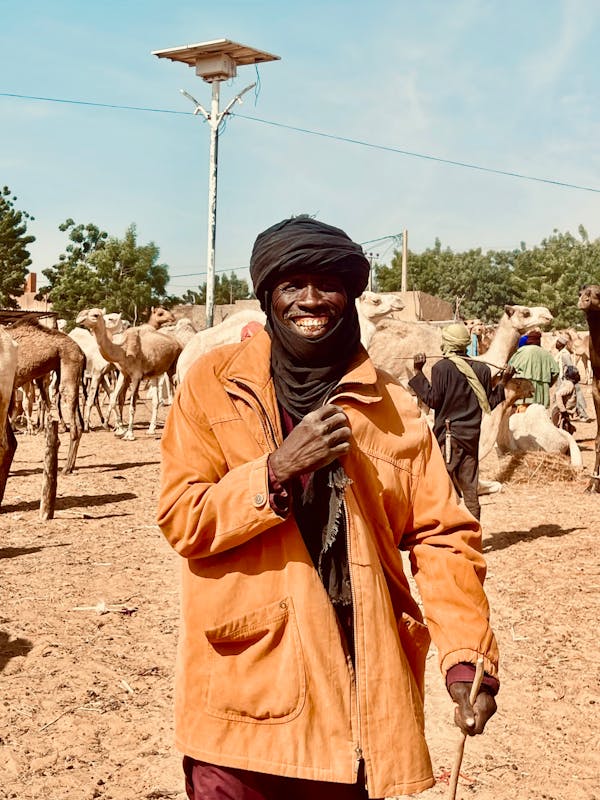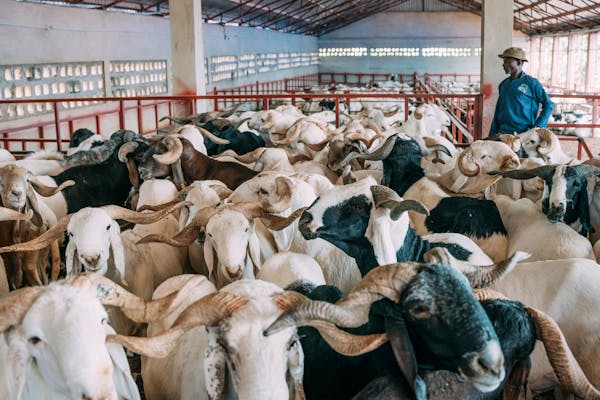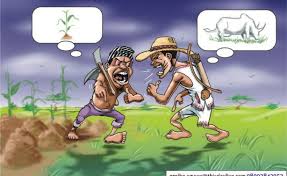Nigeria, Africa’s most populous nation, is grappling with a crisis that threatens its socio-economic fabric: the escalating conflict between herders and farmers. This struggle, rooted in competition over land and water resources, has intensified in recent years, leading to significant loss of life, displacement, and a downturn in agricultural productivity. As President Bola Tinubu acknowledged following deadly attacks in Benue and Plateau State recently, such incidents deepen religious and ethnic divisions, further destabilizing the region.

Historically, Nigeria’s Fulani herders practiced transhumance, moving their livestock seasonally in search of pasture. However, factors like climate change, desertification, and population growth have disrupted these patterns. Desertification has rendered up to 60% of Nigeria’s land barren, pushing herders southward into territories occupied by sedentary farmers. This migration has led to increased competition over dwindling arable land and water resources.
The situation is further complicated by ethnic and religious tensions, with many of the herders being Muslim-Fulani and the farmers predominantly Christian. This dynamic has transformed resource-based disputes into broader communal conflicts.
Economic and Agricultural Impacts
The repercussions of these conflicts on Nigeria’s economy are profound. Agriculture, a cornerstone of Nigeria’s economy, has suffered immensely. In northern Nigeria, farmers are abandoning their lands due to fear of attacks, leading to decreased agricultural output and increased food prices. Staple crops like rice, beans, yam, and maize are particularly affected, exacerbating food insecurity and inflation.
A study by the Environment for Development (EfD) initiative highlights that the perceived risk of violence significantly affects rural households’ agricultural output and economic welfare. This decline in productivity not only threatens national food security but also undermines livelihoods, pushing more Nigerians into poverty.

Global Context and Comparisons
Nigeria’s farmer-herder conflict is not isolated. Across West and Central Africa, similar disputes have escalated. In countries like Mali, Burkina Faso, and the Central African Republic, competition over land and water has led to increased violence. Militant groups have exploited these tensions, further destabilizing the region.
In Chad, farmer-herder violence has reached unprecedented levels, exacerbating regional divides and leading to significant casualties. These examples underscore the broader implications of such conflicts on regional stability and development.
Root Causes and Contributing Factors
Several factors contribute to the intensification of the herder-farmer conflict in Nigeria:
- Climate Change: Desertification and changing rainfall patterns have degraded grazing lands in the north, forcing herders to migrate southward.
- Population Growth: Nigeria’s rapidly growing population increases demand for land and resources, intensifying competition.
- Weak Governance: Inadequate conflict resolution mechanisms and lack of effective land-use policies exacerbate tensions.
- Ethno-Religious Divides: Historical mistrust and ethnic divisions fuel animosity, turning resource disputes into communal conflicts.
- Insecurity: The proliferation of armed groups and the availability of small arms have escalated the scale and lethality of conflicts.

Consequences Beyond Agriculture
The implications of the herder-farmer conflict extend beyond agriculture:
- Displacement: Thousands have been displaced, leading to humanitarian crises and straining resources in host communities.
- Education Disruption: In conflict zones, schools are often closed, depriving children of education.
- Healthcare Strain: Displacement and violence increase the burden on healthcare systems, leading to deteriorating health outcomes.
- Economic Decline: Reduced agricultural output affects trade and increases reliance on food imports, impacting the national economy.
Addressing the herder-farmer conflict requires a multi-faceted approach:
- Land Use Reform: Implementing clear land tenure systems can reduce disputes over land ownership and usage.
- Ranching Initiatives: Transitioning from open grazing to ranching can minimize conflicts and improve livestock management.
- Conflict Resolution Mechanisms: Establishing community-based conflict resolution platforms can foster dialogue and understanding.
- Climate Adaptation Strategies: Investing in sustainable land management and climate-resilient agriculture can mitigate the effects of climate change.
- Security Enhancement: Strengthening security in vulnerable regions can protect communities and deter violence.
Conclusion
The herder-farmer conflict in Nigeria is a complex challenge with deep-rooted causes and far-reaching consequences. Its impact on agricultural productivity, economic stability, and social cohesion cannot be overstated. Addressing this crisis requires concerted efforts from government, civil society, and international partners. By implementing comprehensive strategies that tackle the root causes and promote sustainable coexistence, Nigeria can pave the way for a more peaceful and prosperous future.
Contributed by Agolo Eugene Uzorka, a Human Resource Consultant and Content Writer.













